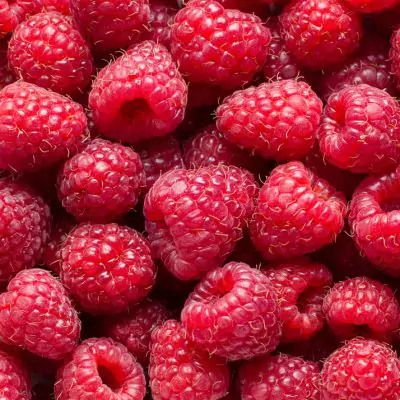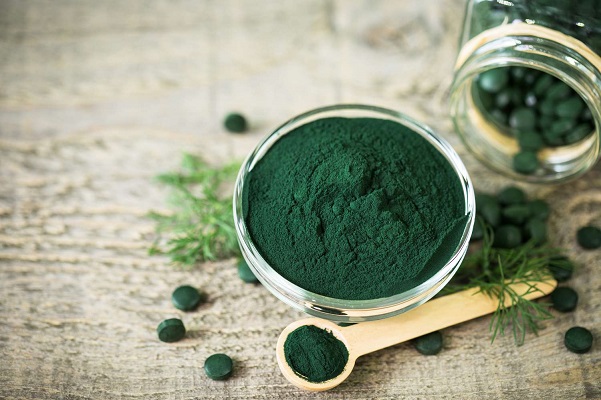On This Page
Overview
Throughout the entire year, you can eat raspberries as a fruit. Raspberries are a tasty and adaptable fruit that is good both fresh and frozen. They possess numerous advantageous qualities, including anti-inflammatory, anti-cancer, anti-allergic, cardio-protective, and many more. The fruit comes in a variety of hues, including red, black, purple, and golden. Minerals, vitamins, and antioxidants are different for each color.
Red raspberries are among the most widely cultivated fruits, nevertheless. They have a variety of antioxidants, including vitamins C and E. They also include zeaxanthin, beta carotene, lutein, lycopene, selenium, and beta carotene. Flavonoids, which have antioxidant properties, are also present. They also serve a variety of medical purposes and show promise in preventing cancer.
Synonyms of Raspberries
- Rubus Ellipticus
- Ainselu
- Golden evergreen raspberry
- Golden Himalayan raspberry
- Yellow Himalayan raspberry
Nutritional Facts of Raspberries
One cup of fresh red raspberries contains:
| Calories: | 64 |
| Protein: | 1 gram |
| Fat: | 1 gram |
| Carbohydrates: | 14 grams |
| Fiber: | 8 grams |
| Sugar: | 5 grams |
Phytochemical Constituents of Raspberries
Anthocyanins and Ellagitannins, Accompanied by significantly lower concentrations of flavonoids, phenolic acids, and flavan-3-ols
Therapeutic Uses of Raspberries
- Good for Diabetics
One of the berries with the least sugar is raspberry, particularly red raspberry. They are therefore a great option for those who want to reduce their sugar intake while yet satisfying their sweet tooth. Additionally, they have a relatively low glycemic index, which may assist in controlling blood sugar levels. It’s also because raspberries have a lot of fiber in them. It slows down digestion and lessens the chance of blood sugar levels rising.
- Anti-Allergic Effect
Quercetin, a flavonoid with antihistamine qualities, is abundant in red raspberries. Research suggests that it might prevent histamine from being released. Inflammation is brought on by a substance called histamine, which is a byproduct of the immunological reaction. This antihistamine can aid in reducing a variety of allergic reactions, including runny nose, hives (urticaria), watery eyes, and other swellings and inflammations.
- Weight Loss
Because raspberries are high in dietary fiber, they help you feel satisfied for longer by slowing down the digestive process. Raspberries include manganese, which speeds your metabolism and aids in fat loss. Adding raspberries to your diet will help you lose weight more quickly.
- Combat Cancer
Because they are high in ellagic acid, which can prevent malignancies, raspberries aid in the fight against cancer. It functions as an antioxidant that inhibits the growth of specific malignant cells, including those that cause breast, lung, skin, bladder, and esophageal cancers.
Home Remedies
- Cleanser
Raspberries can also be applied to the skin to cleanse it. You may get rid of all the filth and dust that is beneath your skin by using raspberries. Depending on your skin type, take some skin clay and combine it with some water and raspberry extract. Apply this face mask now, let it sit for 10 to 20 minutes, and then rinse with warm water. Your skin will be thoroughly cleansed by this face mask, leaving it soft and smooth.
- Support healthy hair
Minerals, vitamins, and nutrients abound in raspberries. You can employ these nutrients in the raspberry to maintain the health of your hair.
Oat powder, almond oil, amla juice, curd, and lemon juice should all be combined with some raspberry juice.
Apply this combination to the hair and scalp, then wait 40 minutes.
- Inflammation or pain
Many people get inflammation as a result of exhaustion or insect stings. Raspberries work well to reduce swelling from various body areas. Raspberries can be used even if you are in discomfort. Consuming raspberries regularly can help you get rid of pain and edema.
- Raspberry for Kidney
For those with kidney issues, raspberries are highly helpful. You can prepare raspberry veggie and eat it if you are experiencing kidney issues as well. All kidney-related illnesses can be healed by eating this veggie.

Have A Health Issue?
Consult Online
- Dr. Sahil Gupta (B.A.M.S., M.H.A.)
Ayurvedic Allergy Specialist
CEO & Founder of IAFA®
Ayurvedic Aspects of Raspberries
Raspberries are cooling, sweet, tangy, and astringent, with a pungent aftertaste. This sattvic superfood has a lot to offer in terms of both health and aesthetics. Raspberries, which are members of the rose family, are available not only in the gorgeous shade of red we all admire, but also in purple, black, and yellow. They are categorized in Ayurveda as a cooling food that calms both Pitta and Vata. Pitta can occasionally consume them, and they can also soothe Kapha dosha and boost Vata dosha.
Daily Dose: One cup of raspberries (123g) is sufficient daily
Side effects of Raspberries
Even though there aren’t many studies on raspberry’s impacts on humans, relatively few of these consequences are known. Therefore, no one is aware of the long-term implications of eating an excessive amount of raspberries.
Although most of the adverse effects of raspberry leaf tea are minor, they should nevertheless be taken into account.
Conclusion
One of the best fruits to choose from among the superfoods is the red raspberry. They are abundant in vital minerals like phosphorus, manganese, selenium, iron, copper, and zinc as well as vitamins A, C, E, and K.
These nutrients are extremely advantageous and aid in boosting the immune system, combating allergies, and lowering the risk of several illnesses, including cancer. Because they have a very low glycaemic index and can help regulate blood sugar, they are also a fantastic fruit option for those who have diabetes. But before incorporating it into your diet must consult with your health experts as said earlier that there are no side effects noticed so far from raspberry but in case you found some adverse effects or any kind of allergy from raspberries you can book an appointment to get natural herbal treatment at IAFA from Dr. Gupta. He is an Ayurvedic expert who treats allergies and other ailments through Ayurvedic approach.
References
- Berkeley Wellness: “Types of Raspberries.”
- https://www.ncbi.nlm.nih.gov/pmc/articles/PMC4295307/#:~:text=The%20raspberry%20fruit%20contains%20a,distinctive%20for%20the%20family%20Rosaceae.









